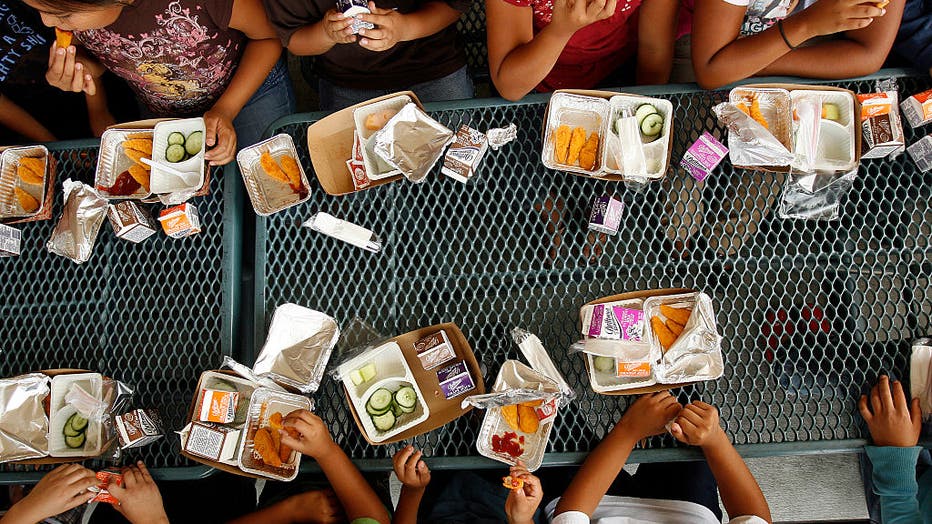Democrat lawmakers pushing Kemp for answers over Georgia's opting out of summer EBT program
Kemp slammed over summer meal program refusal
Top Georgia Democrats are slamming Gov. Kemp over his refusal to participate in a federal program that feeds kids over the summer, called "Sun Bucks."
Georgia U.S. Rep. Lucy McBath is pushing Gov. Brian Kemp for answers over the state's decision to opt out of the U.S. Department of Agriculture’s Summer EBT Program (S-EBT), also known as "Sun Bucks."
The program provides low-income families with school-aged children a $40 benefit for every eligible child each month while school is out.
Reps. McBath, Sanford Bishop, Nikema Williams, Henry "Hank" Johnson Jr., David Scott, and Sens. Raphael Warnock and Jon Ossoff sent a letter to Kemp about the state opting out on Thursday.
"Committing to participate in Summer EBT in 2025 is a simple, commonsense step that will ensure that every child in our state, regardless of where they live, has access to food when they need it most," the letter reads. "States that refuse to participate in Summer EBT for unsubstantiated reasons are needlessly putting children in jeopardy during the summer months."

(Photo by Rick Loomis/Los Angeles Times via Getty Images)
Officials say about 1.2 million low-income children in Georgia would be eligible for the program.
The Peach State is one of 12 that did not participate this year or is not planning to participate in the program next summer.
"That’s a problem. Without the summer federal EBT program, the governor's office is refusing to feed our children," said Rep. Lucy McBath, D-GA 7th District.
"The governor's office is putting politics instead of people that desperately need assistance," said state Sen. Jason Esteves, D-Atlanta.
"Unfortunately, current summer meal programs are not sufficient, and the needs of families in Georgia are not being met," the letter reads.
"It shouldn’t be political, but when you have an election year where things are highly politicized, unfortunately feeding children is one of those things," said Sen. Esteves
The deadline for the state to commit to the program is Aug. 15.
You can read the full letter below.
According to the latest data from Feeding America, one in five Georgia children faces hunger.
"Childhood hunger can cause long-term physical, academic, and emotional consequences. Summer hunger can also result in higher amounts of learning loss when children return to the school in the fall," said Kelsey Boone, Food Research and Action Center.
The governor’s office has reportedly told other news outlets it has concerns over the program’s nutrition standards and financial sustainability.
The state has its own "seamless summer option" that gives kids breakfast and lunch over the summer.
Sen. Esteves says that’s not enough.

